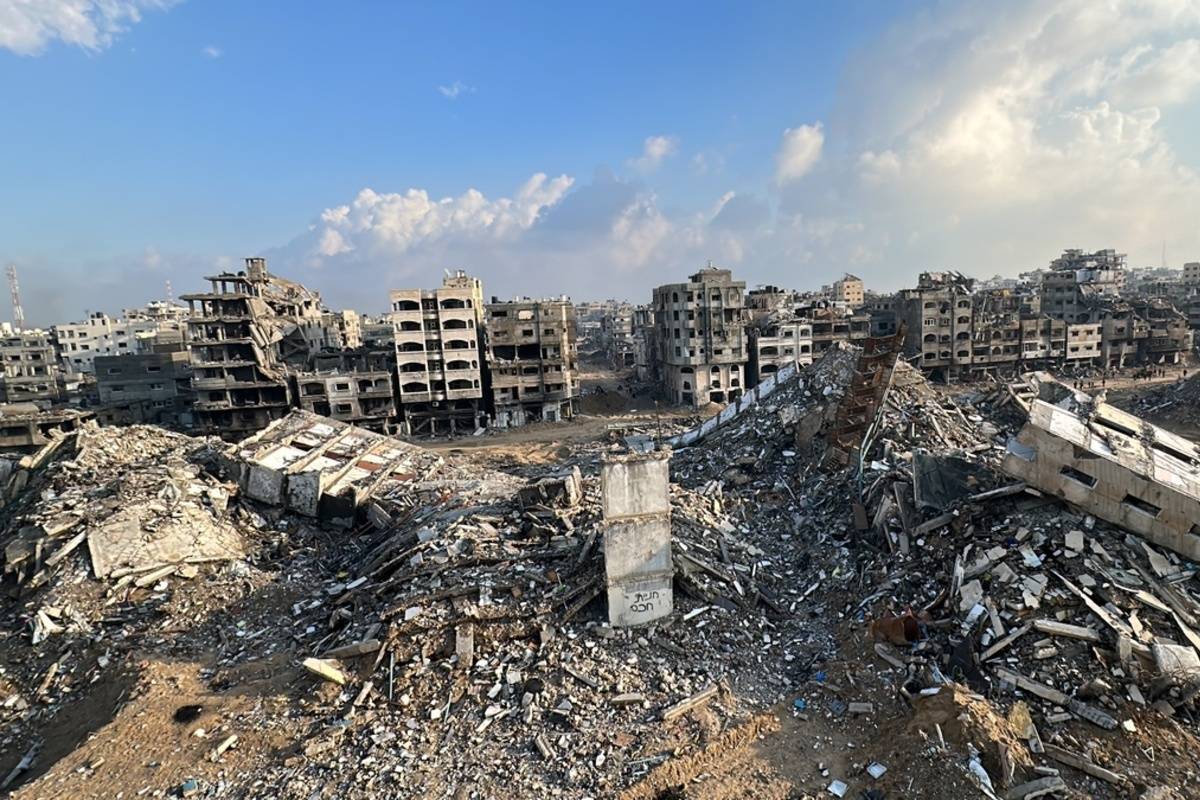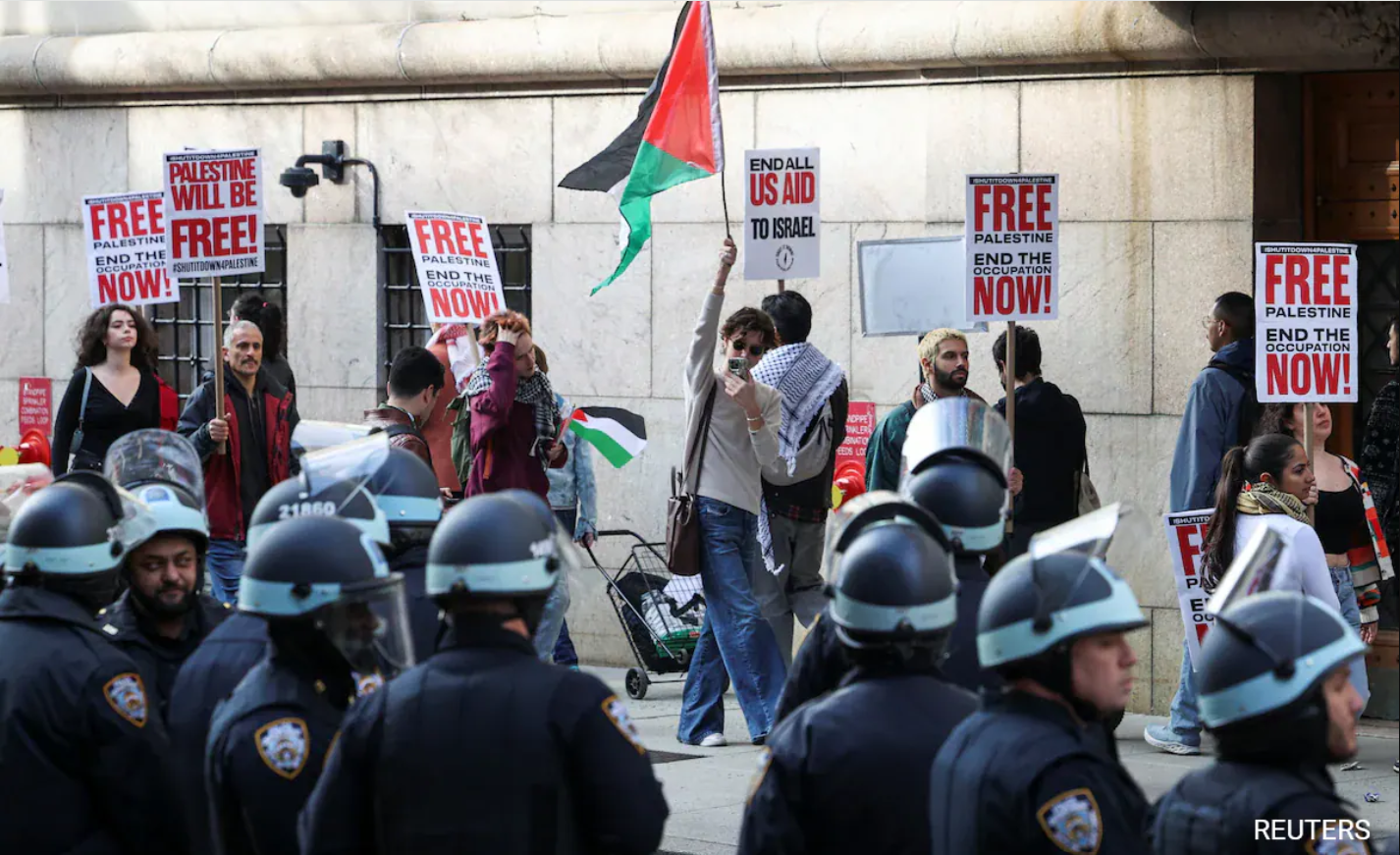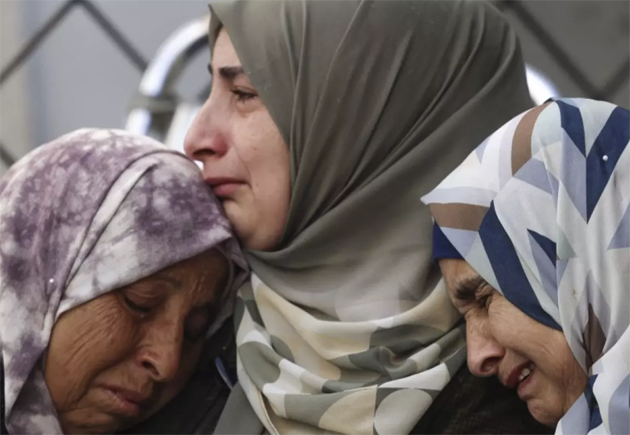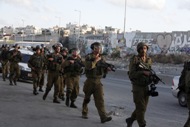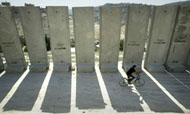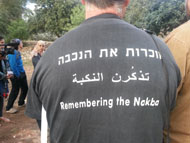
This past Monday, a siren went off, reminding Israelis to observe their traditional moment of silence, honoring victims of the Holocaust. Traffic came to a halt; drivers stepped out of their car and respectfully bowed their heads. Incidentally, Holocaust Remembrance day is internationally recognized on January 27th however, Israelis commemorate the tragedy on April 9, marking the significant Warsaw ghetto uprising, against European Nazis.
The systematic genocide of the Jewish race (among other minorities) within a four and half year period is appalling to say the least. Millions of Jews were relocated to ghettos and then concentration camps, subsequently murdered. Although the Holocaust is an immeasurable tragedy, certain similarities align with Palestinian victims of Israeli occupation. Considering that the majority of Israeli Jews do not travel to the Palestinian territories, they are oblivious to the convoluted Palestinian lifestyle as a direct result of their government. Meanwhile, the rationale behind writing with such a compelling contrast will hit home for Israelis. Most importantly however, it will shed light on the Palestinian cause, absent from Israeli media, forcing responsibility on Israelis to look inward. For this to happen, a mutual understanding is required in order to prevent human right abuses from continuing. Hedy Epstein, a holocaust survivor, turned advocate for Palestine, has coined the phrase, “Never Again (for Jews), Again by Jews.”
Ironically, the following day Palestinian supporters commemorated the massacre of Deir Yassin. Zochrot, an Israeli non-governmental organization aimed at introducing the Palestinian Nakba (catastrophe) to the Israeli-Jewish public, organized a tour of the former village, which has since been renamed Kanfei Nesharim.
Originally, a Palestinian village of an estimated 600 inhabitants, Deir Yassin suffered a violent ambush from Zionist militias on April 9, 1948. Upon their invasion, a warning came over a loud speaker to evacuate immediately. The majority of its residents fled to neighboring villages, fearing for their safety. The families who remained faced brutal attacks, some execution-style murders.
Coincidentally, the Zionist perspective challenges the very existence of Deir Yassin, particularly the massacre. Nevertheless, an official report from the International Committee of the Red Cross (ICRC) refutes any debate. The majority of the dead were Palestinian civilians, (not armed opposition as Zionists claim) and shot at close range; 93 defenseless villagers to be exact. Responsible for accounting the casualties and physical destruction, a member of the ICRC distinctly reported an encounter with a Zionist soldier who bragged about his knife, 60 centimeters long, 10 centimeters wide, double edged, covered in blood. Conversely, Zionist forces carried out massacres and wiped out numerous Palestinian villages over the course of the next decade (Kufr Qassem 1956, Qibya 1953, etc) in order to establish a Jewish state, eerily similar to the Nazi razing of Jewish communities, the majority of whom were transferred to ghettos.
Moreover, the tour comprised of a Deir Yassin native, showing us the house he grew up in, neighboring the primary school he attended. His vivid recollection of Deir Yassin complicates Zionist attempts to erase its historical remains.
Despite varying complexities between the Holocaust and Israel’s occupation of Palestinian territory, several parallels can be drawn from one another, emphasizing a pattern of human rights abuses. For instance, the horrifying conditions of the Jewish ghettos and Palestinian refugee camps or the distinctive identification for Jewish citizens (armbands) contrasting the Palestinian identification cards, (varying colors) both reflect inferiority and limited freedoms.
These historical references highlight the employment of violence and displacement against minorities vulnerable to superpowers. This article aims to commemorate the Jewish and Palestinian suffering. It is not to highlight further divisions but rather so that human rights can one day prevail.
Nejwa Ali is a Writer for the Media and Information Department at the Palestinian Initiative for the Promotion of Global Dialogue and Democracy (MIFTAH). She can be contacted at mid@miftah.org.




